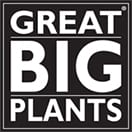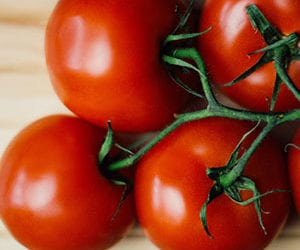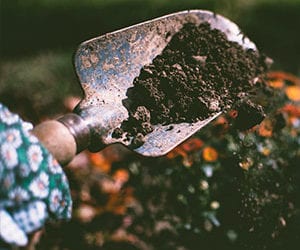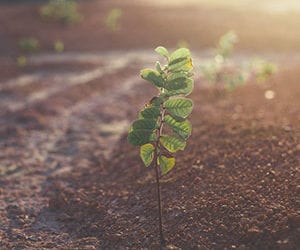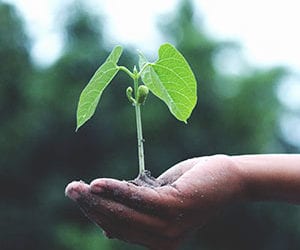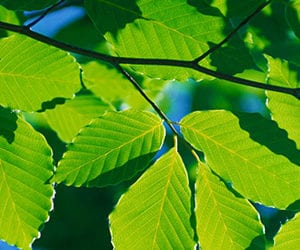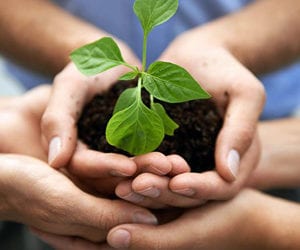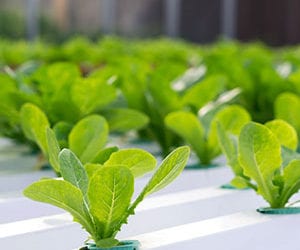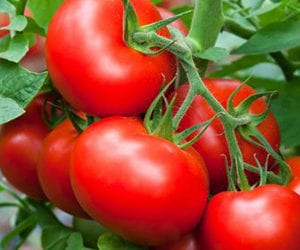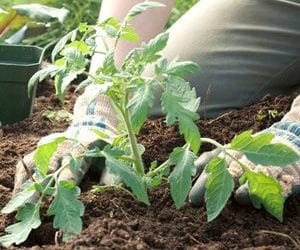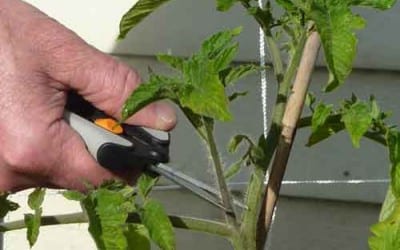Frequently Asked Questions
Can I use Great Big Tomatoes on other plants?
– Yes! Our products are designed for optimal tomato growth, but they work just as well on the rest of your garden.
Can I use Great Big Roses on other flowers and plants?
– Yes! We advise you treat your entire flower bed with Great Big Roses; vegetable gardens will also benefit from an addition of Great Big Roses.
Is it organic?
– Yes! Our products are verified and listed by the CDFA and WSDA. They are safe to use in gardens and yards with children, pets, and those with compromised immune systems.
What if I add too much?
– Our Natural Compost Extracts are more than safe for your plants, these products are soil amendments and do not contain the levels of Macronutrients capable of buring or otherwise harming your plants. The only loss will be the extra amount of product used.
One pint per plant doesn’t seem like enough for my bigger plants, what do I do?
– There are two answers to this. Once diluted, our products should be applied at the same rate you would normally water each plant respectively. Some may get more than a pint, some less. In addition, the driving factor of our products are microbes; with regular treatments even small additions of the product will result in these organisms reproducing naturally in the soil, meaning compounding benefits no matter what.
How do I apply your products?
– With the exception of our Liquid Humate, which can be used as a foliar spray if diluted, all of our products are applied directly to the soil – not the plant. Usage instructions are included on each label for further clarity.
Video for
Natural Compost Extract Product Knowledge
Articles for
Frequently Asked Questions
How To Avoid Blossom End Rot On Tomatoes
Growing tomatoes can seem very easy for some folks and enjoying your own vine ripened heirloom tomatoes is a real treat. However, there are several issues that can arise seemingly out of nowhere.
What Are The Benefits Of Using Compost
Whether one has a green thumb or is a complete gardening novice, everyone agrees that compost is a “good thing”. At the same time, very few of us are aware of the specific compost benefits to our garden soil.
Why Plants Need More Than Fertilizer
One of the best ways to make deposits of a wide variety of nutrients into the Soil Bank is to use compost in your garden. It helps soil structure and porosity (improves aeration) and includes beneficial microorganisms.
What Is Humic Acid
What Is Humic Acid? While humic acid is still a relatively new concept to those not professionally involved in agriculture and gardening and is not widely available except through Internet or direct mail outlets.
How To Avoid Blossom End Rot On Tomatoes
Growing tomatoes can seem very easy for some folks and enjoying your own vine ripened heirloom tomatoes is a real treat. However, there are several issues that can arise seemingly out of nowhere.
What Are The Benefits Of Using Compost
Whether one has a green thumb or is a complete gardening novice, everyone agrees that compost is a “good thing”. At the same time, very few of us are aware of the specific compost benefits to our garden soil.
Why Plants Need More Than Fertilizer
One of the best ways to make deposits of a wide variety of nutrients into the Soil Bank is to use compost in your garden. It helps soil structure and porosity (improves aeration) and includes beneficial microorganisms.
What Is Humic Acid
What Is Humic Acid? While humic acid is still a relatively new concept to those not professionally involved in agriculture and gardening and is not widely available except through Internet or direct mail outlets.
Articles for
Your Garden
Tree & Shrub Care
Trees and shrubs need the same things in the root zone as plants do. Problem is, it’s often harder to add fertilizer and supplements for well-established shrubs and trees.
Rose & Flower
We all want lush foliage and lots of big, colorful blooms from our roses and flowers, but how do we get there? Care and feeding is the answer. These plant types, roses especially, are considered heavy feeders.
Manure Alternative
In spite of the smell and mess, people add manure to their garden soil or on top their lawns because they believe it is a natural and traditional way to improve soil.
Hydroponics Gardening
Growing plants in hydroponics systems can be very rewarding – higher yields and year round production no matter what the weather is outside. Unfortunately, the learning curve can be steep.
Growing Tomatoes
Growing Tomatoes If you find growing tomatoes to be challenging, you are not alone. Some gardeners seem to really struggle with growing tomatoes, while others end up supplying the whole neighborhood.
Organic Gardening
Our country was founded on organic farming and gardening. These days, organic gardening is pursued by many home gardeners as a way to reduce toxicity in their gardens and food supply.
Tree & Shrub Care
Trees and shrubs need the same things in the root zone as plants do. Problem is, it’s often harder to add fertilizer and supplements for well-established shrubs and trees.
Rose & Flower
We all want lush foliage and lots of big, colorful blooms from our roses and flowers, but how do we get there? Care and feeding is the answer. These plant types, roses especially, are considered heavy feeders.
Manure Alternative
In spite of the smell and mess, people add manure to their garden soil or on top their lawns because they believe it is a natural and traditional way to improve soil.
Hydroponics Gardening
Growing plants in hydroponics systems can be very rewarding – higher yields and year round production no matter what the weather is outside. Unfortunately, the learning curve can be steep.
Growing Tomatoes
Growing Tomatoes If you find growing tomatoes to be challenging, you are not alone. Some gardeners seem to really struggle with growing tomatoes, while others end up supplying the whole neighborhood.
Organic Gardening
Our country was founded on organic farming and gardening. These days, organic gardening is pursued by many home gardeners as a way to reduce toxicity in their gardens and food supply.
Pruning Tomatoes
A properly pruned and supported single-stem tomato plant presents all of its leaves to the
sun. Most of the sugar produced is directed to the developing fruit, since the only competition
is a single growing tip. The result is large fruits that are steadily produced until frost.
Resources
Helpful articles & links
Garden Bloggers We Like
Gardening Blog
A Way to Garden
Garden Rant
Drunken Botanist
Veggie Gardening Tips
Research & Articles
Great Big Plants Outperforms. Summary of results of 2012 Fresno State tests on organic bell peppers and basil.
3 Keys to Healthy Plants. Important facts about why soil health and vitality affect plant growth and production.
Humates in Agriculture by Michael Karr, Ph.D. on the various beneficial effects of humic acid on soil and plant growth.
Nitrogen Sources for Organic Vegetable Crops by Gaskill and Smith includes discussion of the importance of the carbon to nitrogen ratio (C:N) in the ability of the plants to uptake nitrogen and describes how microorganisms convert nutrients into a bioavailable form for plants.
Garden Bloggers We Like
Gardening Blog
A Way to Garden
Garden Rant
Drunken Botanist
Veggie Gardening Tips
Research & Articles
Great Big Plants Outperforms. Summary of results of 2012 Fresno State tests on organic bell peppers and basil.
3 Keys to Healthy Plants. Important facts about why soil health and vitality affect plant growth and production.
Humates in Agriculture by Michael Karr, Ph.D. on the various beneficial effects of humic acid on soil and plant growth.
Nitrogen Sources for Organic Vegetable Crops by Gaskill and Smith includes discussion of the importance of the carbon to nitrogen ratio (C:N) in the ability of the plants to uptake nitrogen and describes how microorganisms convert nutrients into a bioavailable form for plants.
